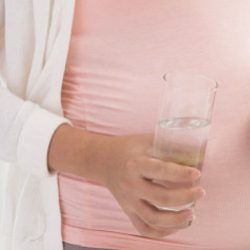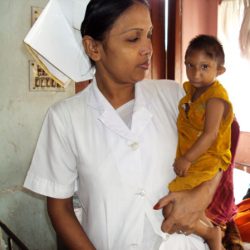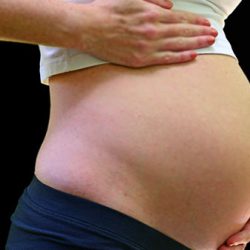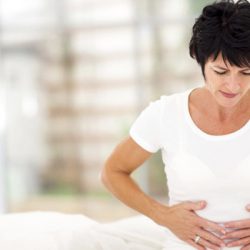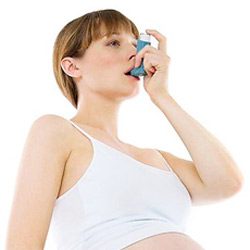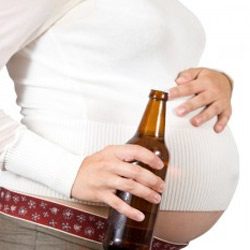A relatively healthy diet before pregnancy is linked to a lower rate of certain heart abnormalities in babies at birth, finds research published in the Archives of Disease in Childhood (Fetal & Neonatal Edition). Congenital heart defects are common, costly, and affect around 1% of newborns in the USA. Around one in four affected children will die infancy as a result. So … [Read more...]
Fertility & Pregnancy News

Children born by cesarean section were 21 percent more likely to be diagnosed with autism: A Study
The initial results of a study suggested that children born by cesarean section were 21 percent more likely to be diagnosed with autism spectrum disorder but that association did not hold up in further analysis of sibling pairs, implying the initial association was not causal and was more likely due to unknown genetic or environmental factors, according to an article published … [Read more...]
The infant gut microbiome: New studies on its origins and how it’s knocked out of balance: A Swedish Study
A fecal sample analysis of 98 Swedish infants over the first year of life found a connection between the development of a child's gut microbiome and the way he or she is delivered. Babies born via C-section had gut bacteria that showed significantly less resemblance to their mothers compared to those that were delivered vaginally. The study, which appears May 11 in Cell Host … [Read more...]
Yoga can help keep expectant mothers stress free: A Manchester University
For the first time, researchers in the UK have studied the effects of yoga on pregnant women, and found that it can reduce the risk of them developing anxiety and depression. Stress during pregnancy has been linked to premature birth, low birth weight and increased developmental and behavioural problems in the child as a toddler and adolescent, as well as later mental health … [Read more...]
Acupuncture can treat hot flashes: A Study
In the 2,500+ years that have passed since acupuncture was first used by the ancient Chinese, it has been used to treat a number of physical, mental and emotional conditions including nausea and vomiting, stroke rehabilitation, headaches, menstrual cramps, asthma, carpal tunnel, fibromyalgia and osteoarthritis, to name just a few. Now, a meta-analysis of randomized controlled … [Read more...]
Caffeine intake may worsen menopausal hot flashes and night sweats: A Study
A new Mayo Clinic study, published online by the journal Menopause, found an association between caffeine intake and more bothersome hot flashes and night sweats in postmenopausal women. The study also showed an association between caffeine intake and fewer problems with mood, memory and concentration in perimenopausal women, possibly because caffeine is known to enhance … [Read more...]
Pregnant women are often given inappropriate treatment for malaria: A Study
Not all pregnant women with symptoms of malaria seek care from their formal healthcare system and if they do seek care, they may be given inappropriate treatment because healthcare providers often fail to adhere to the standard (World Health Organization-WHO) diagnostic and treatment guidelines, according to a study by UK researchers published in this week's PLOS … [Read more...]
Premature babies are at an increased risk for developing autism: A Washington University Study
Premature babies are at an increased risk for developing autism spectrum disorder. But a small study indicates that preemies who avoid eye contact in early infancy are less likely to demonstrate symptoms of autism at age 2 than preemies who maintain eye contact during early interactions, according to new research at Washington University School of Medicine in St. … [Read more...]
High-fat maternal diet changes newborn heart ‘tastebuds’
The study, led by the UNSW Head of Pharmacology Professor Margaret Morris and published in Nutrition, Metabolism and Cardiovascular Diseases, examined the effect of a fatty maternal diet on receptors in the hearts of newborn rats, including those which detect certain flavours. Taste receptors have only recently been shown to exist outside the mouth, at sites including the … [Read more...]
Benefits, risks of antidepressants during pregnancy
Treating maternal psychiatric disorder with commonly used antidepressants is associated with a lower risk of certain pregnancy complications including preterm birth and delivery by Caesarean section, according to researchers at Columbia University's Mailman School of Public Health, Columbia University Medical Center, and the New York State Psychiatric Institute. However, the … [Read more...]
New information on brain development and fertility discovered: A Study
Researchers at IRB Barcelona study CEP63, a gene that is mutated in Seckel Syndrome, a rare disease that causes microcephaly and growth defects. The protein CEP63 is crucial for the correct division of brain stem cells. In its absence, mice reproduce Seckel Syndrome. The scientists rescued the microcephaly during mouse embryonic development by removing a protein that caused … [Read more...]
Mother’s diet affects offspring alcohol and nicotine use: A Rockefeller University Study
Researchers at The Rockefeller University have found in a study with rats that a mother's consumption of a fat-rich diet during pregnancy increases her offspring's risk of a combined alcohol and nicotine abuse in adolescence. The study performed by Olga Karatayev in the Neurobiology Laboratory of Dr. Sarah Leibowitz at Rockefeller provides insight into early life factors that … [Read more...]
Poor sanitation practices in pregnant women linked to adverse pregnancy outcomes in India: A Study
Poor sanitation practices, such as open defecation, in pregnant women are linked to adverse pregnancy outcomes in two rural areas of Odisha state, India, according to a study published by Bijaya K Padhi from the Asian Institute of Public Health, Bhubaneswar, and colleagues in this week's PLOS Medicine. The researchers enrolled 670 women during the first trimester of their … [Read more...]
Pregnant teens linked to low iron: A Cornell University Study
In a study of 158 pregnant teenagers in Rochester, NY, nearly half engaged in pica – the craving and intentional consumption of ice, cornstarch, vacuum dust, baby powder and soap, and other nonfood items, reports a new Cornell study. Moreover, such teens had significantly lower iron levels as compared with teens who did not eat nonfood substances. Pregnant teens, … [Read more...]
Antidepressants linked with birth defects: A Study
Some antidepressants known as SSRIs (selective serotonin reuptake inhibitors) taken during early pregnancy may indeed be associated with an increased risk of birth defects, finds a study published in The BMJ this week. The authors stress that if these associations are causal, the absolute risks for these birth defects are still low, and they call for further studies "to … [Read more...]
Solar events unlikely to trigger birth defects on Earth: University of Kansas Study
Studies find airplane crews at high altitude are exposed to potentially harmful levels of radiation from cosmic rays. "Neutrons which don't reach the ground do reach airline altitude," said Adrian Melott, professor of physics and astronomy at the University of Kansas. "Flight crews get a lot more radiation dose from neutrons. In fact, during solar particle events, airplanes are … [Read more...]
Breastfeeding help shape immune system early in life: A Study
Henry Ford Hospital researchers say that breastfeeding and other factors influence a baby's immune system development and susceptibility to allergies and asthma by what's in their gut. The striking findings from a series of studies further advance the so-called hygiene hypothesis theory that early childhood exposure to microorganisms affects the immune system's development … [Read more...]
Why the bloating during menopause? Blame the hormones or the lack of them
Water retention -- a cause of bloating -- is associated with changes in sex hormone levels. Many women experience water retention during menopause, but how sex hormones affect water balance is not understood. A new study in in the American Journal of Physiology -- Renal Physiology sheds light on the connection, finding that sex hormones can directly control how the body … [Read more...]
Mom’s weight during first pregnancy may impact second child
A woman's weight during her first pregnancy can affect how her second baby fares, Saint Louis University research finds. Physicians have long recognized complications can occur when a mother is not at a healthy weight when she first becomes pregnant. Saint Louis University's research, published electronically in the June 20 issue of the American Journal of Obstetrics and … [Read more...]
Pregnant women with asthma should not take antibiotics: A Study
Getting sick when you're pregnant is especially difficult, but women whose children are at risk for developing asthma should avoid antibiotics, according to a new study. The study, published in the Annals of Allergy, Asthma and Immunology, the scientific publication of the American College of Allergy, Asthma and Immunology (ACAAI), followed 298 mother-child pairs through the … [Read more...]
Too much folic acid while pregnant may put daughters at risk of diabetes and obesity: A Portuguese Study
Mothers that take excessive amounts of folic acid during pregnancy may predispose their daughters to diabetes and obesity later in life, according to a new study published today in the Journal of Endocrinology. With high dose supplements being widely available, the study calls for a need to establish a safe upper limit of folic acid intake for pregnant women. A Portuguese … [Read more...]
More women use alternative medicine for menopause: A Study
The use of complementary and alternative medicine (CAM) is increasing for the treatment of menopausal symptoms but often without the guidance of a clinician. That's according to a new study reported online today in Menopause, the journal of the North American Menopause Society (NAMS). As a result, the authors suggest that healthcare providers -- in particular family medicine … [Read more...]
Non-hormonal management of menopausal vasomotor symptoms: A Study
Elsevier journal Maturitas today announced the publication of a position statement by the European Menopause and Andropause Society (EMAS) covering non-hormonal management of menopausal vasomotor symptoms. Hot flashes are a common menopausal symptom. They tend to intensify during the perimenopause and usually subside within 5 years after the final menstrual period. However … [Read more...]
Healthy Pregnancy: What You Eat Does Matter!
When it comes to getting pregnant, a whole host of factors come into play, and that apparently includes a woman’s diet. Some researchers even think a bad diet may lead to miscarriages. One woman and her doctor think her drastic diet changes resulted in a new addition to her family. After the birth of her son, 34-year-old Sarah Hayes and her husband wanted a second child. … [Read more...]
Smoking, preterm birth synergistically increase mothers’ cardiovascular disease risk: A European Society of Cardiology Study
Mothers who smoke and have a preterm birth more than triple their risk of cardiovascular disease (CVD), according to research in more than 900,000 mothers published in the European Journal of Preventive Cardiology. The risk of maternal CVD increased in a dose response relationship with the number and severity of preterm births. "Smoking and preterm birth synergistically … [Read more...]
Mother’s diet affects offspring alcohol and nicotine use: A Study
Researchers at The Rockefeller University have found in a study with rats that a mother's consumption of a fat-rich diet during pregnancy increases her offspring's risk of a combined alcohol and nicotine abuse in adolescence. The study performed by Olga Karatayev in the Neurobiology Laboratory of Dr. Sarah Leibowitz at Rockefeller provides insight into early life factors that … [Read more...]
Drinking alcohol while pregnant is common
Drinking alcohol while pregnant is common, ranging from 20% to 80% among those questioned in the UK, Ireland, Australia and New Zealand, reveals a study of almost 18,000 women published in the online journal BMJ Open. Women across all social strata drank during pregnancy, the findings showed. But expectant mums were significantly more likely to be drinkers if they were also … [Read more...]
New Discovery could improve IVF success rates for women: A Oregon Health & Science University Study
Scientists at Oregon Health & Science University, Stanford University, University of Valencia and IGENOMIX have discovered that chromosomal abnormalities in human embryos created for in vitro fertilization, or IVF, can be predicted within the first 30 hours of development at the cell-1 stage which results from the union of a female egg and male sperm. This discovery, … [Read more...]
Maintaining a healthy weight during pregnancy helps mother and baby: A Study
Pregnant women can improve their health and even reduce the risk of complications during childbirth by maintaining a healthy weight through diet and exercise. Research has shown that gaining too much weight during pregnancy increases the risk of gestational diabetes, high blood pressure, large babies, and delivery by caesarean section; and newborns with large birth weights are … [Read more...]
Female cystic fibrosis patients need more contraceptive guidance: A University of Pennsylvania Study
Only half of women with cystic fibrosis (CF) report using contraception and frequently apt to become pregnant unintentionally, according to a new study from researchers at the Perelman School of Medicine at the University of Pennsylvania. The results of the study were presented at the 2015 American Congress of Obstetricians and Gynecologists Annual Clinical and Scientific … [Read more...]
- « Previous Page
- 1
- …
- 11
- 12
- 13
- 14
- 15
- …
- 41
- Next Page »









